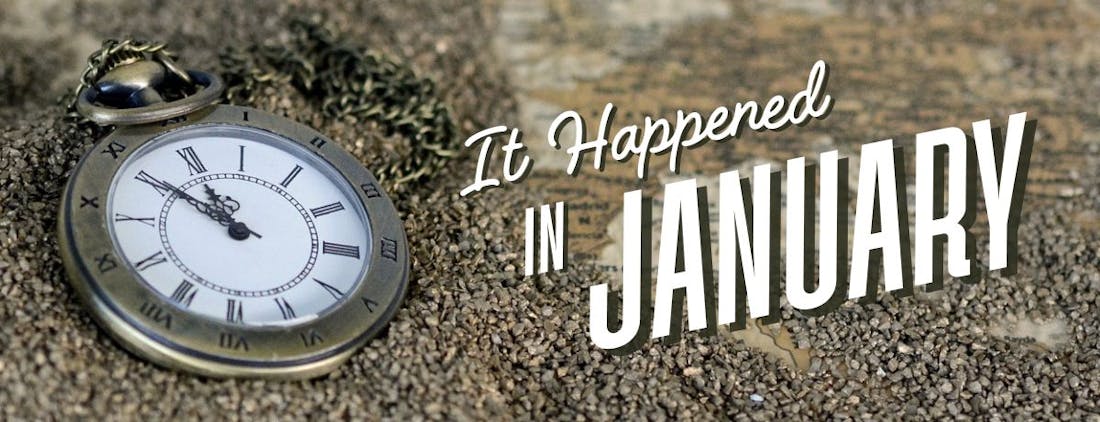
View Historical Events by Day: What Happened on January 11 in History?
Explore the historical events that shaped our world on January 11th. From major milestones to cultural achievements, see what happened on this day in history. Dates for earlier events may be approximate.
Note: Sources for the historical content shown, include research and reviews of relevant Online History Resources or printed material. When possible, we show a link to a source which provides additional or unique perspective about the event.
We do our best to provide accurate information but would appreciate being notified if any incorrect information is found. You may do so by using our Feedback link.
According to Roman tradition, Romulus dedicates the Temple of Jupiter Stator on the Capitoline Hill.
A truce is agreed upon between England and Scotland, temporarily halting hostilities during the Hundred Years' War.
Pope Gregory XII resigns from the papacy as part of efforts to resolve the Western Schism.
King Henry V of England dies, and his infant son becomes King Henry VI.
The Treaty of Brussels is signed, ending the Anglo-French War of 1522–1526.
England's Glorious Revolution begins as William of Orange lands at Torbay to overthrow King James II.
A peace conference begins in Utrecht, aiming to end the War of the Spanish Succession.
Royal astronomer Edmond Halley presents his paper on the periodicity of his namesake comet to the Royal Society.
The first American professional librarian, Louis Timothee, is hired in Philadelphia.
The first session of the Continental Congress convenes in Philadelphia.
John Jay, on behalf of the United States, signs the Jay Treaty with Great Britain, easing tensions between the two countries.
Samuel Morse and Alfred Vail publicly demonstrate their telegraph system for the first time at the Speedwell Iron Works in Morristown, New Jersey, by sending a telegram across two miles of wire. Morse continued to improve the system as well as invented the Morse Code while trying to get financial backing.
The Wedding March by Felix Mendelssohn is played for the first time at a wedding in Germany.
The Anglo - Zulu war begins when British troops invade Zululand from the southern African republic of Natal after Zululand King Cetshwayo refuses the British demands for him to disband his army or join a federation of British colonies and Boer Republics. The Zulus proved to be formidable opponents but could not overcome the technological advantage the British and were eventually defeated after a series of particularly bloody battles which lasted eight months. It wasn't until 1887 that Zululand was declared British territory and finally annexed to Natal ten years later. More
Supreme Court rules that Native Americans cannot be barred from voting in the U.S.
U.S. President Theodore Roosevelt declares the Grand Canyon in Arizona a National Monument after having it established it as a Game Preserve by Proclamation in 1906. Theodore Roosevelt, protected approximately 230 million acres of public land during his presidency. More
The first landing of an aircraft on a ship occurs as Eugene Ely lands a Curtiss Pusher biplane on the USS Pennsylvania in San Francisco Bay.
Amelia Earhart becomes the first person to fly solo from Hawaii to California. More
The United States Surgeon General Luther Terry announces that cigarette smoking may be hazardous to health and it is linked to serious health effects, including lung cancer and heart disease. More






.png?auto=format,compress&fit=crop&w=280&h=280&q=93)








.jpg?format,compress&fit=crop&w=280&h=280&q=93)
.jpg?format,compress&fit=crop&w=280&h=280&q=93)












